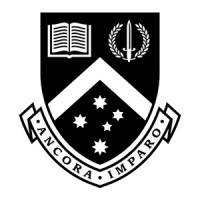Loading...

PhD Scholarship in Anthropology of Hydrogen Futures
Monash University
Clayton campus, Melbourne, Australia
PhD ScholarshipHydrogen FuturesEthnographic ResearchEnergy TransitionIndustrial DecarbonisationSocial ScienceResearch FundingFieldworkCommunity EngagementAcademic Qualifications
Expired
Dates
- Opening Date: Not Available
- Closing Date: 03-Nov-2024
Location
- Clayton campus, Melbourne, Australia
Salary
- Research Living Allowance of $35,013 AUD per annum (tax-free stipend), indexed plus allowances as per RTP stipend scholarship conditions. A tuition fee scholarship and Single Overseas Health Cover (OSHC) will be provided for a successful international awardee.
Responsibilities
- Critically examine the emerging hydrogen industry in Australia and its impact on regional communities.
- Contribute to the social science of the energy transition and industrial decarbonisation by studying the development of the hydrogen sector.
- Conduct in-depth ethnographic research in communities identified as potential future hydrogen hubs.
- Explore local aspirations and ensure that the hydrogen industry addresses the unique needs and desires of the communities involved.
- Undertake a distinct PhD project with a focus that may include extended ethnographic fieldwork or broader issues associated with the hydrogen sector.
Requirements
- Excellent academic track record in Social Science, ideally with experience in anthropology or human geography.
- Proficiency in qualitative research methods, especially ethnographic methods.
- Understanding or interest in energy transitions or industrial decarbonisation.
- Combination of academic qualifications and practical experience in the social dimensions of the energy transition.
- Applicants should hold an Australian (or equivalent international) Honour’s or Master’s degree with a significant research component and first-class honours/H1 awarded.
Benefits
- Integrated into a successful research agenda funded by the Australian Research Council.
- Access to funding to support fieldwork, travel, and conference attendance.
- Expert supervision from research leaders in social science, especially anthropology and human geography.
- Opportunities for co-authored publications and participation in research workshops.
Notes
- The successful applicant will be expected to enroll by March 2025, with some flexibility in the commencement date.
- Applicants who already hold a PhD will not be considered.
- Enquiries should be directed to Dr Kari Dahlgren before submitting an Expression of Interest.